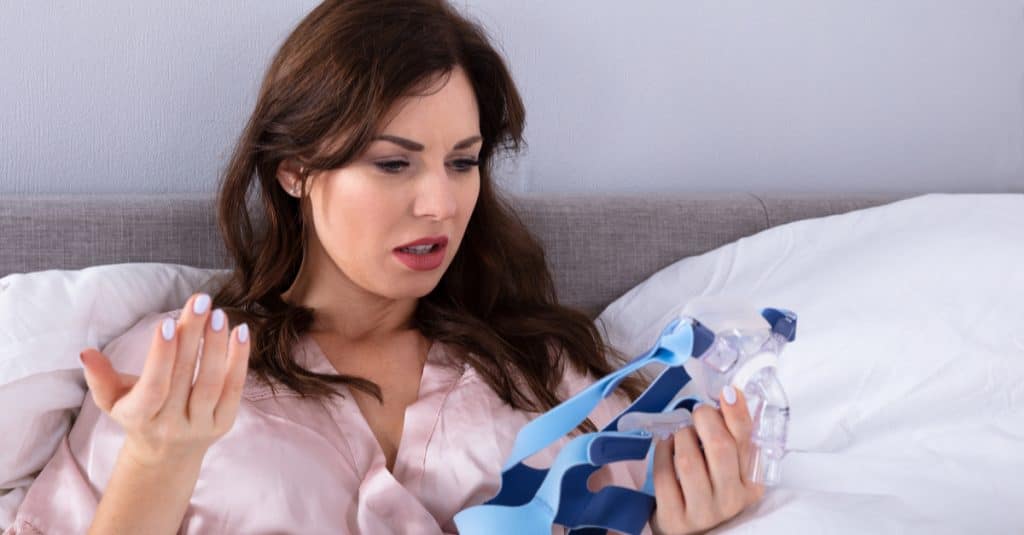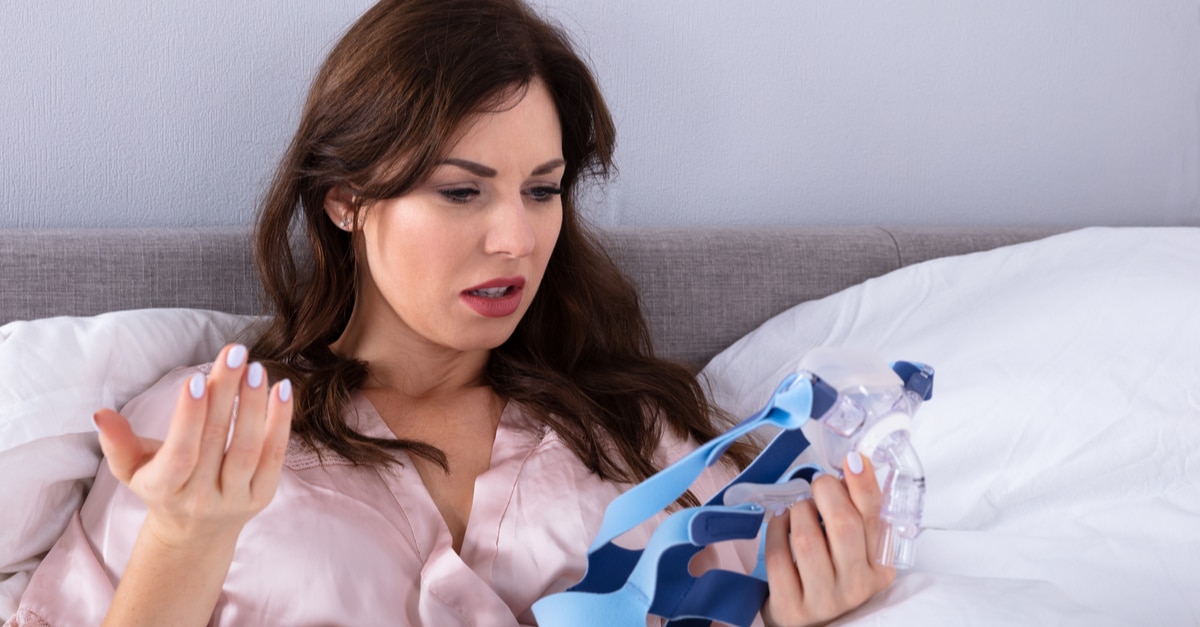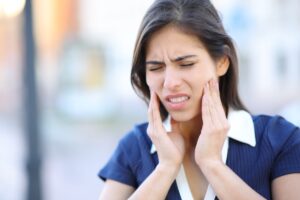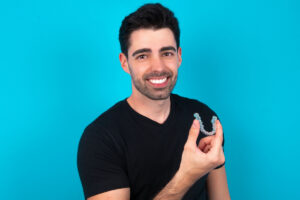If you or your partner snores, you are likely aware that it could be part of a larger problem than just the noise—snoring can be caused by sleep apnea, a condition where the airway is blocked for periods of time throughout the night. Sleep apnea causes a serious strain on health, and can even be life-threatening, leading to heart disease, high blood pressure, strokes, and more. The good news is, sleep apnea can be treated. Many patients resist treatment, however, as when they hear sleep apnea, they think CPAP—and they don’t want to sleep with a clunky CPAP machine. Depending on your condition, though, it’s possible to turn to an alternative to CPAP: oral appliances.

How do oral appliances work?
With sleep apnea, the tongue is blocking the airway when a patient sleeps. A CPAP machine offers continuous air pressure, which displaces the tongue, uvula, and soft palate and allows oxygen to continually enter the lungs—it prevents the airway from blocking. An oral appliance is a mouthpiece similar to a retainer. It can keep the airway open by moving the lower jaw and tongue forward, and, like with the CPAP, prevent the airway from blocking.
Can I use an oral appliance instead of CPAP?
It is very likely that you can if…
- You have mild to moderate sleep apnea. People with sleep apnea can have it in varying degrees, from mild to moderate to severe. A patient with mild sleep apnea stops breathing 5-15 times per hour; moderate, 16-30; severe, more than 30 times. If you are diagnosed with severe sleep apnea, your first line of treatment will be attempting to use CPAP. (And in some cases, a combination of CPAP and oral appliances is required.) If you have mild to moderate sleep apnea, though, oral appliances can offer an alternative to CPAP.
- You have tried CPAP and you can’t tolerate it. CPAP machines are extremely effective at treating sleep apnea. However, some patients find it uncomfortable and difficult to sleep due to the noise the machine creates. Others have side effects they find intolerable, like skin or eye irritation, throat or nose dryness, or headaches. Often people abandon CPAP altogether, or only use it part of the time, decreasing its effectiveness and reducing long-term health benefits. If you are unable to get used to CPAP and decide not to wear it (or decide not to wear it every night), the CPAP obviously can no longer treat your sleep apnea. If this is the case, an oral appliance could possibly make an excellent alternative to CPAP. We have found that 9 out of 10 patients can use oral appliances without any problem. Compare that with a CPAP machine, where around 60% of patients fail to comply because of intolerance after one year.
What is the first step to getting an oral appliance?
If you have never been diagnosed with sleep apnea, the first step is to come in for a consultation. You will visit the office and let us know why you suspect sleep apnea. If you have previously had a sleep study done, you can bring your records for our review. If you haven’t, not a problem! This early appointment is a place where you can learn more about sleep apnea, and we can answer any questions you have. We will perform tests to determine the size of your airway and nasal cavities. Dr. Rondeau will look at the available information to see if he believes an oral appliance can help correct your sleep apnea. If he believes an oral appliance might be the right treatment, he will set up a records appointment. Here, we will get a complete set of records to diagnose sleep apnea. We will even send you home with an at-home sleep study, which will be reviewed by a sleep specialist. Then, at a final consultation appointment, you will receive a diagnosis and treatment plan.
If it’s determined that an oral appliance is best for you, we will move forward from there. If your case is too severe or an oral appliance doesn’t seem best for treatment, Dr. Rondeau will recommend and refer you to his extensive list of contacts who can offer other treatment options. Dr. Rondeau enjoys working with your physician and other providers throughout the process to be sure your treatment is comprehensive and thorough. We want to get you on your way to good, restful, healthy sleep!
Find out more
Are you interested in scheduling a sleep consultation to learn more about oral appliances and correcting your snoring and sleep apnea? Schedule now! (519) 455-4110






